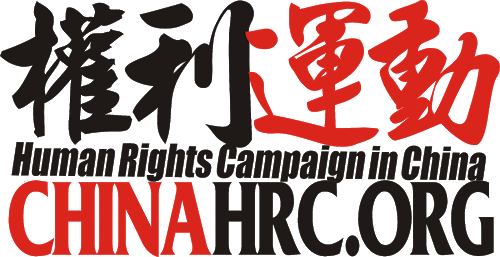据英国外交部档案,1969年1月24日早上4:30中国驻荷兰临时代办廖和叔(46岁)在荷兰海牙叛逃,他是用他的晚礼服编成的带子从代办处的窗口爬下来,然后跑到一个警察局里签下庇护申请书,荷兰政府当天就批准了庇护。他声称刚刚收到中共要求他回国的指示,还说他最终想去美国。荷兰方面担心中方会对荷兰驻华外交官实施报复(比如限制通讯、离境等),就向英国寻求对处理此事的帮助。1月24日下午荷兰司法部发表声明“中国代办通知警方他不再履行代办责任,并要求暂时待在荷兰。荷兰已批准他的要求,他现在已离开海牙”。
1月27日中共国外交部召见荷兰驻华代办Derksen,抗议荷兰政府的态度,要求交回廖和叔。继任中国驻荷代办要求见到廖,但1月28日廖写下书面文字拒见。廖告诉荷兰政府说,最近几个月内他已经受到北京方面的怀疑,被排除在代办处内的决策圈外,也看不到任何电报,而且外出时至少有两名随员陪同。他担心一旦回到中国,就会被打成刘少奇的支持者而受到惩罚。具有讽刺性的是,1966年中国科学家徐子才在海牙叛逃未成而死一事中,廖介入了中方从荷兰医院绑架徐子才的过程。因为徐子才事件,荷兰宣布中国代办李恩求为“不受欢迎的人”并限期离境,廖和叔因此才得以二等秘书的身份代理中国驻荷兰代办之职。荷兰方面认为廖的叛逃完全是出于对个人安全的担心,他因此完全不愿意永久性地待在荷兰,而是想去美国,荷兰也立刻同意放他去美国。
在廖到达美国之前,媒体并没有热炒其叛逃一事,荷兰政府认为中方的反应也还算温和。但2月4日美国国务院宣布正在考虑接受廖的避难申请,而且廖已到达美国。2月6日中方以中国驻华沙大使馆代办陈东名义致函美国驻波兰大使斯托塞尔,抗议“这是美国政府勾结荷兰政府,蓄意制造的一起严重反华事件”,并于2月7日以中共国外交部新闻司发言人声明的方式公开抗议。全国大小报纸刊发新华社对此声明的报道,首次向中国公众公开了廖叛逃之事(见附件,1969年2月7日浙江《杭州日报》和福建《厦门日报》)。出乎美方意料的是,2月18日中共突然通知因该起事件而取消原定于2月20日在波兰举行的中美第135次大使级会谈,并同样以中共国外交部新闻司发言人声明的方式公开。
从中方大做文章来看,似乎中共对廖和叔叛逃事件非常在意。但英国驻华外交官获得消息表明,其实中方私下里并不认为廖这个人和叛逃之事有多么重要,只是对外界大肆报道美方接受廖的避难而感到恼火。比如,中共外交部某人对罗马尼亚外交官说廖叛逃之事“没有什么了不起”、“没多大意思”。更重要的是,中方对荷兰驻华外交官表现地很克制,没有采取什么严厉的惩罚,比如?被允许出境。当然荷兰外交官参观公社、外出旅行、保释被捕的船员肯定会遇到困难。(按:两名荷兰船员分别在前两个月被上海当局逮捕,详见将于两天后公布的1969年3月13日档案)另外,中方礼宾司某人在一场鸡尾酒会上拒绝了荷兰一秘主动伸出的握手要求。
参见:沈韦良《一九六六年,荷兰驱赶我代办事件真相》;骆亦粟 《中美关系解冻的开端》。
___________________________________________________________________
CONFIDENTIAL
Office of the British
Charge d’Affaires,
PEKING.
March 11,1969
Defection of Chinese Charge d’Affaires
in the Netherlands
in the Netherlands
Dear John,
In view of China’s use of the Liao affair as a reason to
call off the Sino-U.S. talks in Warsaw, you may be interested in an indication
that they are playing down the importance of the man,
if not the incident, in private. A Rumanian colleague
was recently assured by a Chinese Foreign Ministry official that Liao’s defection “did not amount to much’ (mei you
shemma liao pu ch’i) and was “not of much importance” (mei tuo ta yi sze).
This line is evidently intended to suggest that the man
himself was of little consequence, and is of course a perfectly natural
reaction. To some extent it conflicts with the public line that the whole
business was an “anti-Chinese plot”. But it also supports the view
that what really nettled the Chinese was Liao’s much-heralded
flit to the United States. This impression has again been confirmed by
the Dutch here.
call off the Sino-U.S. talks in Warsaw, you may be interested in an indication
that they are playing down the importance of the man,
if not the incident, in private. A Rumanian colleague
was recently assured by a Chinese Foreign Ministry official that Liao’s defection “did not amount to much’ (mei you
shemma liao pu ch’i) and was “not of much importance” (mei tuo ta yi sze).
This line is evidently intended to suggest that the man
himself was of little consequence, and is of course a perfectly natural
reaction. To some extent it conflicts with the public line that the whole
business was an “anti-Chinese plot”. But it also supports the view
that what really nettled the Chinese was Liao’s much-heralded
flit to the United States. This impression has again been confirmed by
the Dutch here.
2. The Dutch Office in Peking appears
to have escaped quite lightly. The Charge has told John Denson that the exchanges with the Chinese (T’ang of the West European
Department) were conducted quietly and with complete diplomatic decorum.
It is now improbable that the Chinese will take any serious action against the
Dutch at this late stage. Last week an attache from their mission left China on
time after obtaining an exit visa in the normal way. However, Chinese malice
has been expressed in one or two familiar pinpricks. Their notes from the
Chinese Foreign Ministry no longer bear the usual courtesies. (Even we now
merit a brief expression of respect at the end, if not the beginning, of
Chinese communications.) On an even more petty level, a Dutch First Secretary
complained to me recently that he had been snubbed by a Chinese protocol
official at a cocktail party. The latter had spurned the Dutchman’s proferred
hand! No doubt the Dutch will have the customary
difficulties with travel in China, visits to communes, and bailing out detained subjects. But, all in all, the Chinese have shown remarkable restraint.
to have escaped quite lightly. The Charge has told John Denson that the exchanges with the Chinese (T’ang of the West European
Department) were conducted quietly and with complete diplomatic decorum.
It is now improbable that the Chinese will take any serious action against the
Dutch at this late stage. Last week an attache from their mission left China on
time after obtaining an exit visa in the normal way. However, Chinese malice
has been expressed in one or two familiar pinpricks. Their notes from the
Chinese Foreign Ministry no longer bear the usual courtesies. (Even we now
merit a brief expression of respect at the end, if not the beginning, of
Chinese communications.) On an even more petty level, a Dutch First Secretary
complained to me recently that he had been snubbed by a Chinese protocol
official at a cocktail party. The latter had spurned the Dutchman’s proferred
hand! No doubt the Dutch will have the customary
difficulties with travel in China, visits to communes, and bailing out detained subjects. But, all in all, the Chinese have shown remarkable restraint.
3. I am copying this letter to Ashworth
and McLaren in Hong Kong, to Washington and The Hague.
and McLaren in Hong Kong, to Washington and The Hague.
(G. G. H. Walden)
J. D. I. Boyd, Esq.,
FAR EASTERN DEPARTMENT.
出处:英国外交部档案FCO21/515







